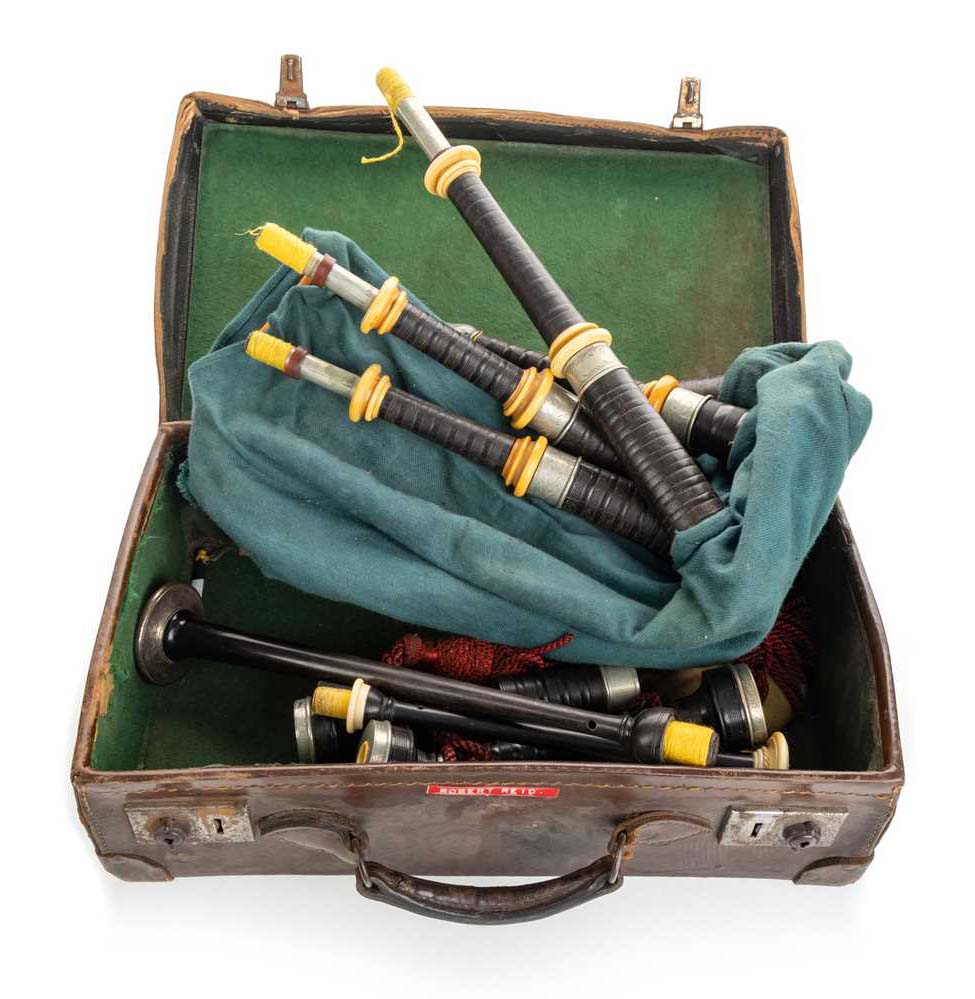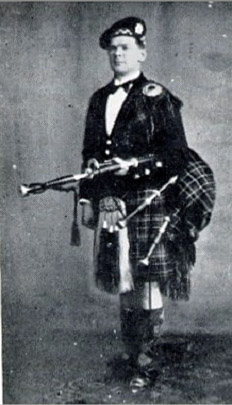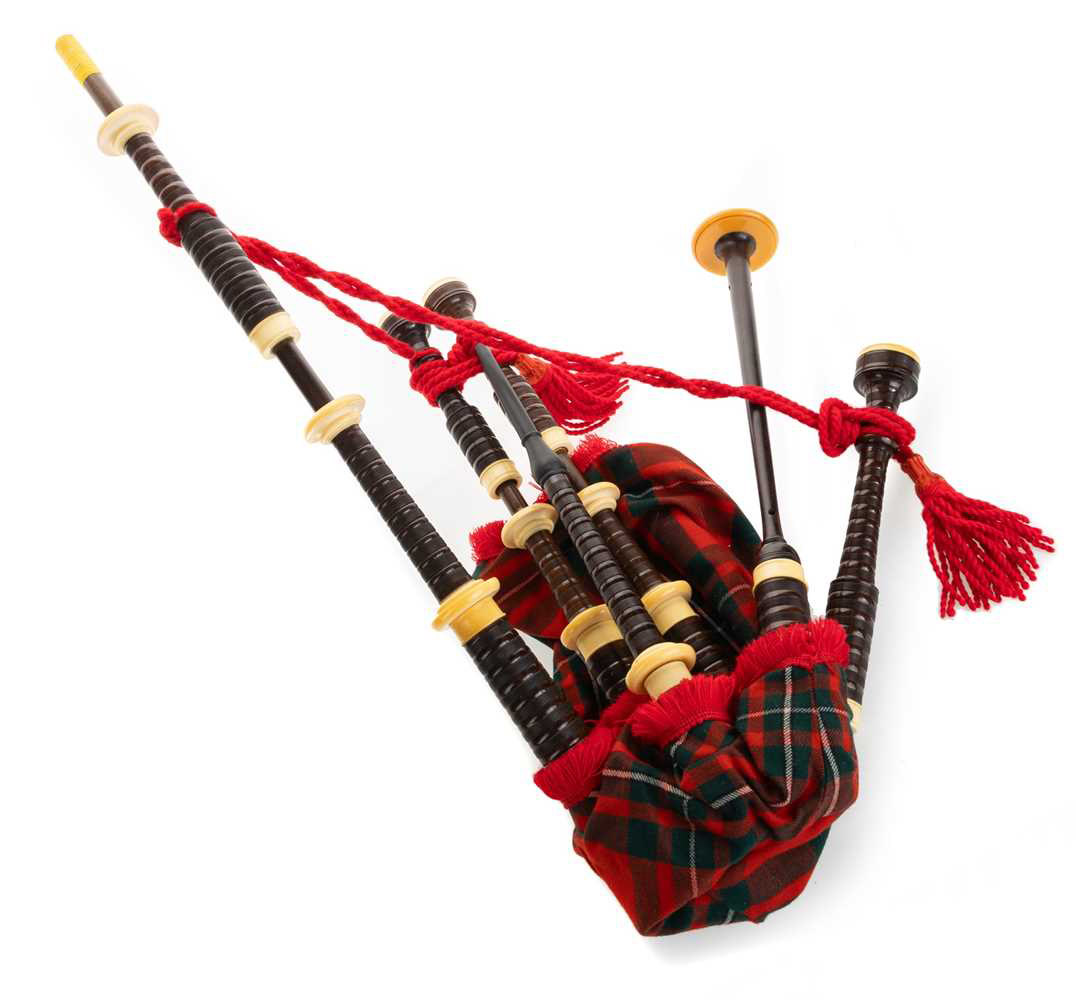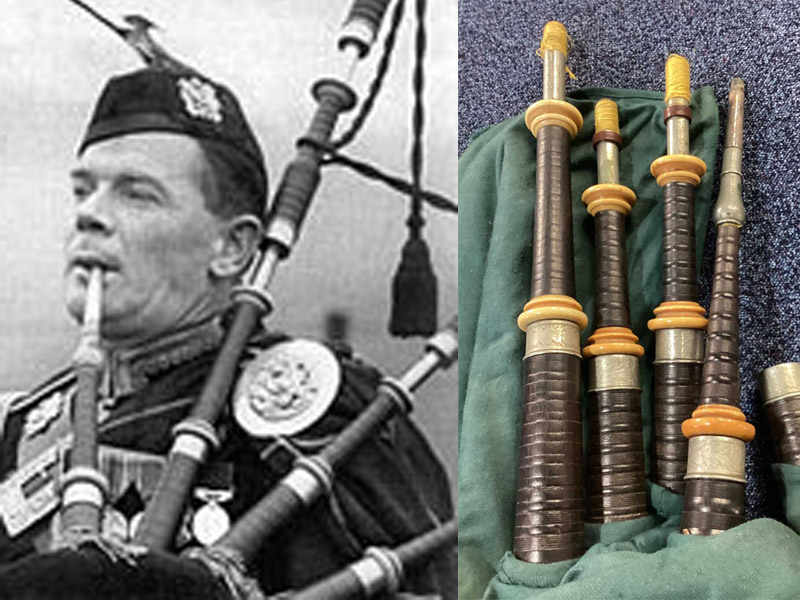Older Robert Reid pipes sold for about £10,000 all-in

A set of pipes, accompanying pipe chanters, and original pipe case purportedly owned and played by the great Robert Reid have sold at auction in Glasgow for £7500. Including commissions and ancillary charges, the total price will be around £10,000, or nearly $18,000.
The pipes are believed to have been made around 1830 by Allan MacDougall of the famous MacDougall family of bagpipe makers. They have brass-lined drones, a common feature of drones made in the 19th century. The pipes are made of cocus wood and mounted in what appears to be walrus tusk, also commonly used in that era. Reportedly, four splits in the drones were evident, and the blowpipe and its stock appeared to be replacements.
Unusual leather bands around the tuning pins were likely once used by Reid to determine the placement of drones for optimal tuning once the reeds settled. The same type of rings, but derived from thick rubber bands on beer bottles of the time, were reportedly also used by the great R.U. Brown.
The winning bid was made in person at McTear’s auction house in Glasgow, exceeding an online bid of £7250.

Another set of pipes made by Robert Reid’s bagpipe-making business in Glasgow sold for a relatively small £650 through an online bid. The pipes are also made of cocus wood but are reportedly in flawless condition. The sellers had expected the pipes to realize £800 to £1,200 at auction.
The bagpipe would likely have been hand-turned by Reid himself, Robert Hardie, and Willie Connell, who worked at Reid’s shop on George Street, Glasgow.
Pipes made by Robert Reid are challenging to find and infrequently come up for sale. Most brand-new sets of pipes comparably mounted are priced higher than £650.
Born in Slamannan, Scotland, in 1895, Robert Reid was one of piping’s most significant competitors and contributors. John MacDougall-Gillies, a pupil of Alick Cameron, taught him. Thus, Reid was a direct conduit to the “Cameron School” of piobaireachd descended from Angus MacKay and the MacCrimmons.
Reid had far fewer pupils than his contemporaries Robert Brown, Robert Nicol and Donald MacLeod, who prolifically taught the “MacPherson” style of the music that they learned from John MacDonald of Inverness.

Reid’s foremost pupil was Connell, who worked at Reid’s bagpipe-making business and received almost daily instruction in piobaireachd for decades. He taught several well-known amateur pipers, including Andrew MacNeill and David Murray. As a result, the less legato and more direct Cameron school of piobaireachd interpretation has mainly been subsumed by or assimilated into the MacPherson style.
Robert Reid died in 1965, infamously instructing his survivors to burn his piping manuscripts. However, many of the tapes he made as an early adopter of recording technology are with the Piobaireachd Society.



NO COMMENTS YET